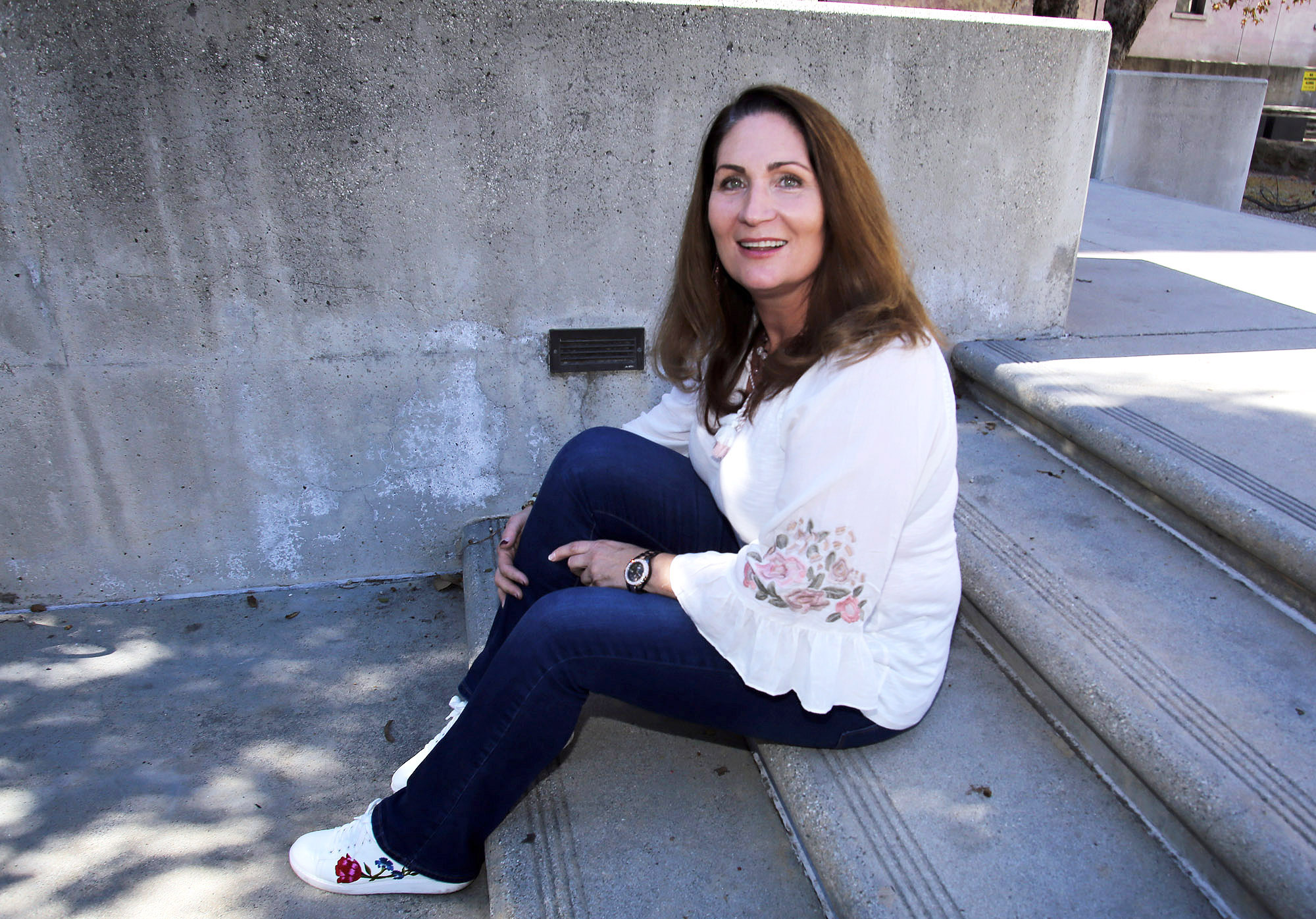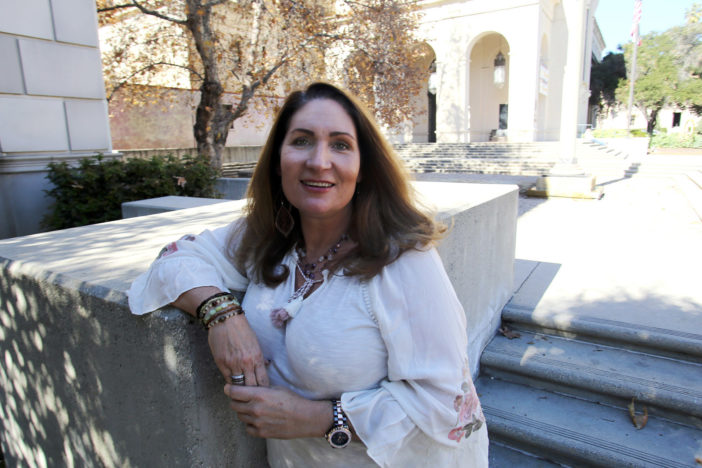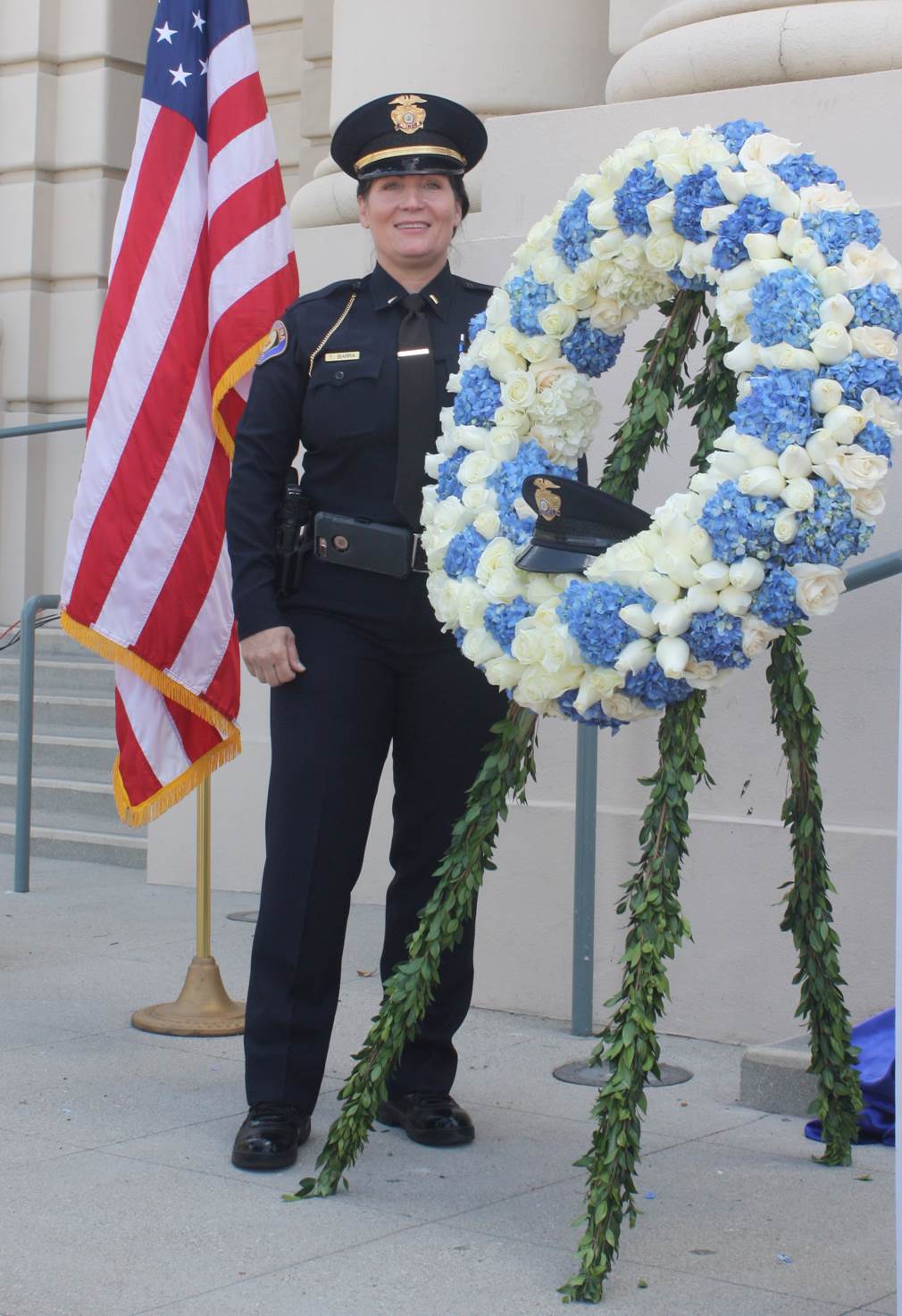Tracey Ibarra spent 35 years of her life in law enforcement, the past 31 with Pasadena PD, and brought the same level of enthusiasm to the job during the days leading up to her retirement in December as she did as an 18-year old records clerk at a police department in Kansas.
For Ibarra, 54, a single mother who raised three children on her own, a career in law enforcement was her God given purpose in life.
“First of all, it was a blast,” said Ibarra, looking back on her three-plus decades on the job. “I think I’m very fortunate. I feel blessed that I had the chance to make a difference.”
Whether it was starting a clergy coalition, where religious and community leaders meet with police once a month to discuss public safety issues, or mentoring youngsters in the Pasadena Police Activities League, Ibarra looked for ways to make a difference.
As an investigator, she followed up with crime victims and recalls making periodic visits to an elderly robbery victim who had later broken her hip.
“I would just come by and have a cup of tea or coffee in the morning and we would just sit and chat,” Ibarra said. “You could see the smile on her face. Someone cared enough to come by and have a cup of tea with her.”
Ibarra’s final assignment before retiring was in the Community Services Section, where part of her duties involved working with Pasadena PD’s Explorers.
When it was discovered that the family of one of the Explorers was close to being evicted because they couldn’t pay the rent, Ibarra scrambled to find alternative housing for the family.
“She was always engaged in the community and always tried to make a difference,” said Sgt. Glenn Thompson, who worked in Community Services with Ibarra. “She had compassion for young people.”
One reason Ibarra wanted to work in Community Services in the first place was to be a positive force for her agency.
“With all of the negative media out there for law enforcement, I wanted to spend the (last) couple of years in community relations and improve that perception,” she said.
Said Thompson, “She always wanted to show the department in a positive light.”
Ibarra grew up in in Kansas, one of nine children, raised by a tough, hard-nosed father, who served in the military and had been a Golden Gloves boxer and a mother who she described as soft-hearted and kind woman.
“My father was a you-just-get-it-done type of person, no matter what,” Ibarra said. “I’ve got this supportive tender mother and I’ve got this very strong, hard on the edges father so I kind became a hybrid of both.”
Ibarra was 18 when she got her first exposure to law enforcement, working in the records department of the Wichita Police Department.
She remembers reading case files, listening to 9-1-1 calls coming into dispatch and overhearing conversations between officers.
“I thought wow, what a great job,” Ibarra said.
At age 20, Ibarra packed a suitcase and moved to Los Angeles, intent on getting a job with the Los Angeles Police Department.
“They seemed to be the cream of the crop,” she said. “Everybody seemed to know LAPD.”
Ibarra was hired by LAPD and enrolled in the police academy before her 21st birthday.
She started out in patrol in LAPD’s notorious Rampart division, a battleground for some of the city’s most violent street gangs.
“That’s why I wanted to work there,” Ibarra said. “It was exciting. Everything was adventurous.”
Ibarra wasn’t even off probation with LAPD when she was the first officer on the scene of a homicide – a dead mother and young daughter who was maybe 6 or 7, lying dead in the living room.
Both their throats were slashed. It was later discovered that the woman’s husband was the murderer.
Even today, she can’t talk about the case without tearing up.
“They were probably about five feet from each other in the living room,” she said. “You either had a situation where the little girl was sitting there probably terrorized while the mother got her throat slit or the mother had to watch her daughter getting murdered.”
Ibarra also has vivid memories of cases involving child molestation where the young victims wouldn’t divulge what happened.
“Mainly they were girls,” she said.
Ibarra was able to make a connection and get the victims to open up.
In 1988, Ibarra married a fellow LAPD officer and moved to Pasadena.
Ibarra started her career with Pasadena PD on Dec. 28, 1988 and retired nearly 30 years later to the day.
She stayed on so long, mainly because of the agency’s philosophy, known as the Pasadena Way – a series of guidelines centering around principles such as service, integrity, innovation and employing a personal touch.

Retired Pasadena Lieutenant Tracey J. Ibarra poses for a picture just outside of the Pasadena Police Department on Friday, January 25, 2019. Photo by James Carbone.
“The philosophy was very evident when I came here,” Ibarra said. “Here in Pasadena, we believe in our community and having that relationship with our community. You had to live and breathe by the Pasadena Way and I loved the values that were built upon that.”
Now retired, Ibarra still believes she has a God given purpose, but a new purpose, one she is anxious to discover.
“I got here because God had a plan for me and put me in a position so I could help others,” she said. “So I look for where that purpose is going to be next.”
 Behind the Badge
Behind the Badge




